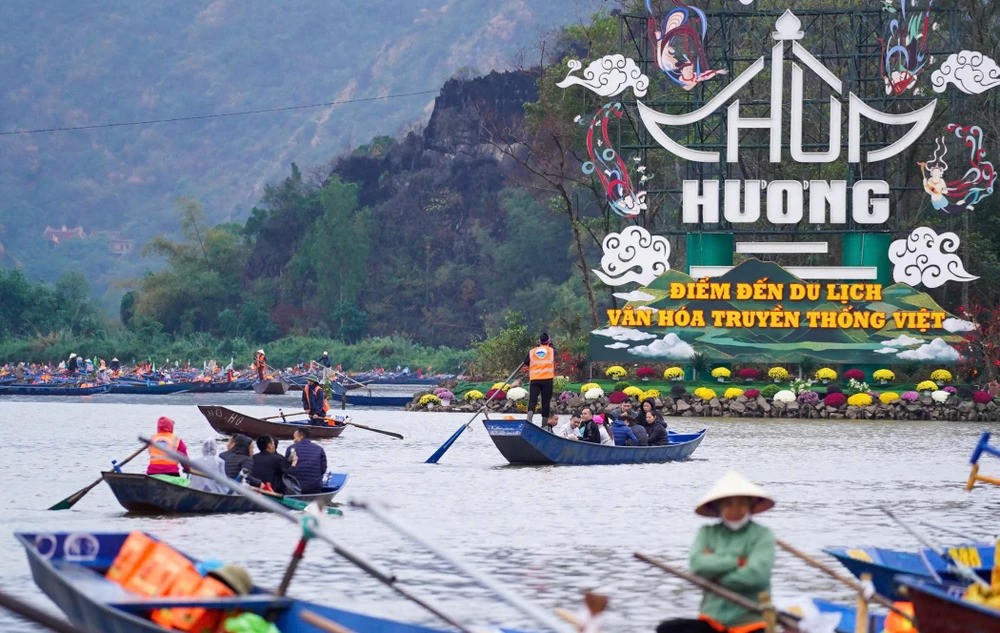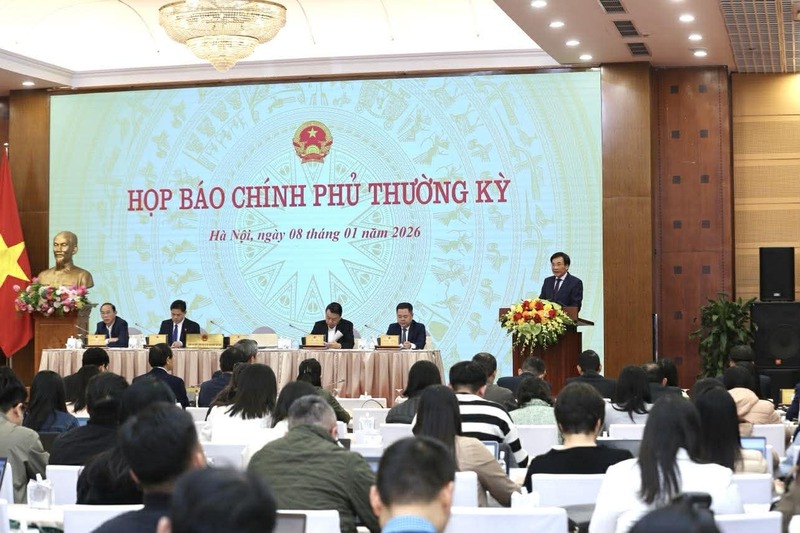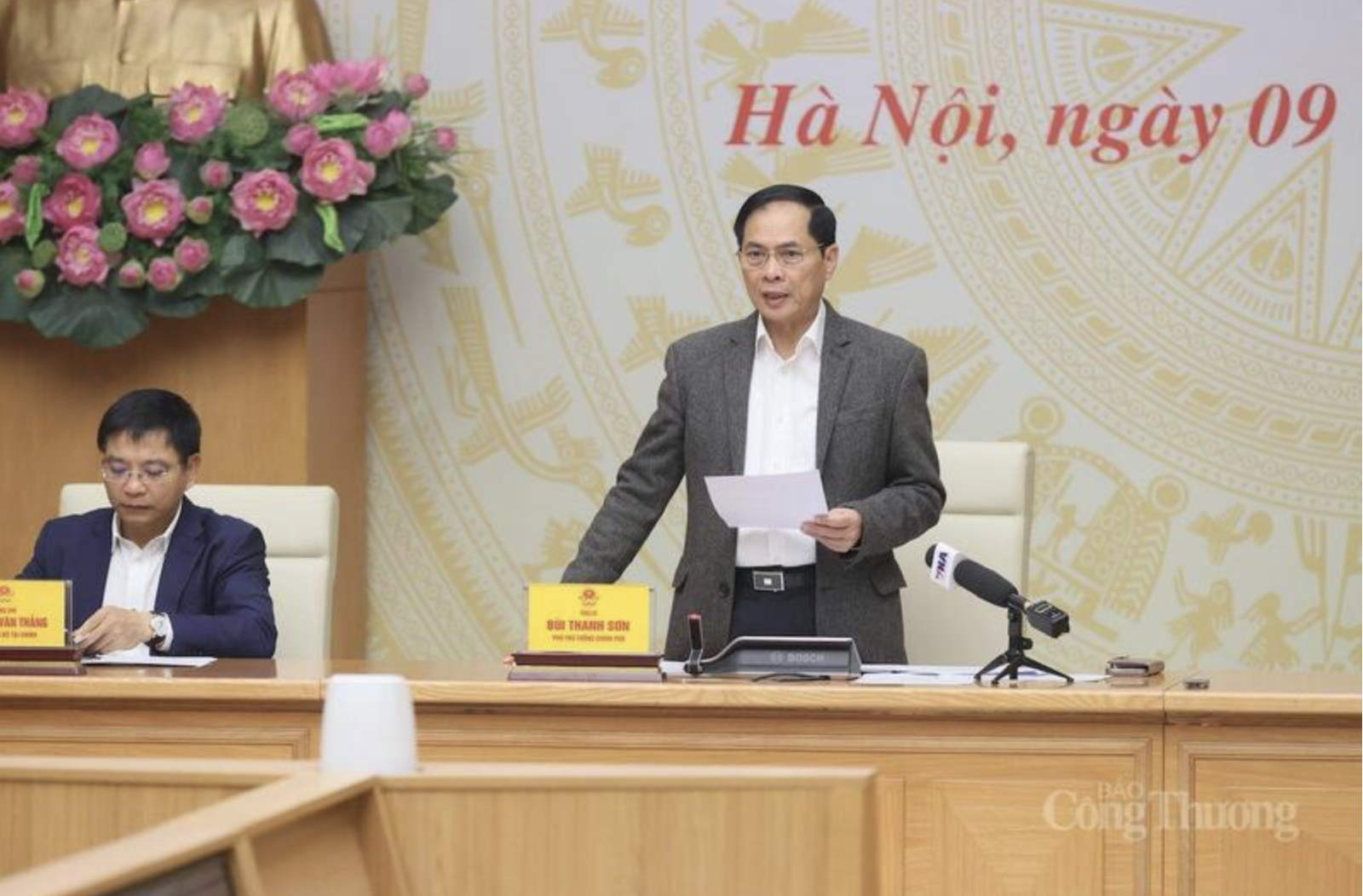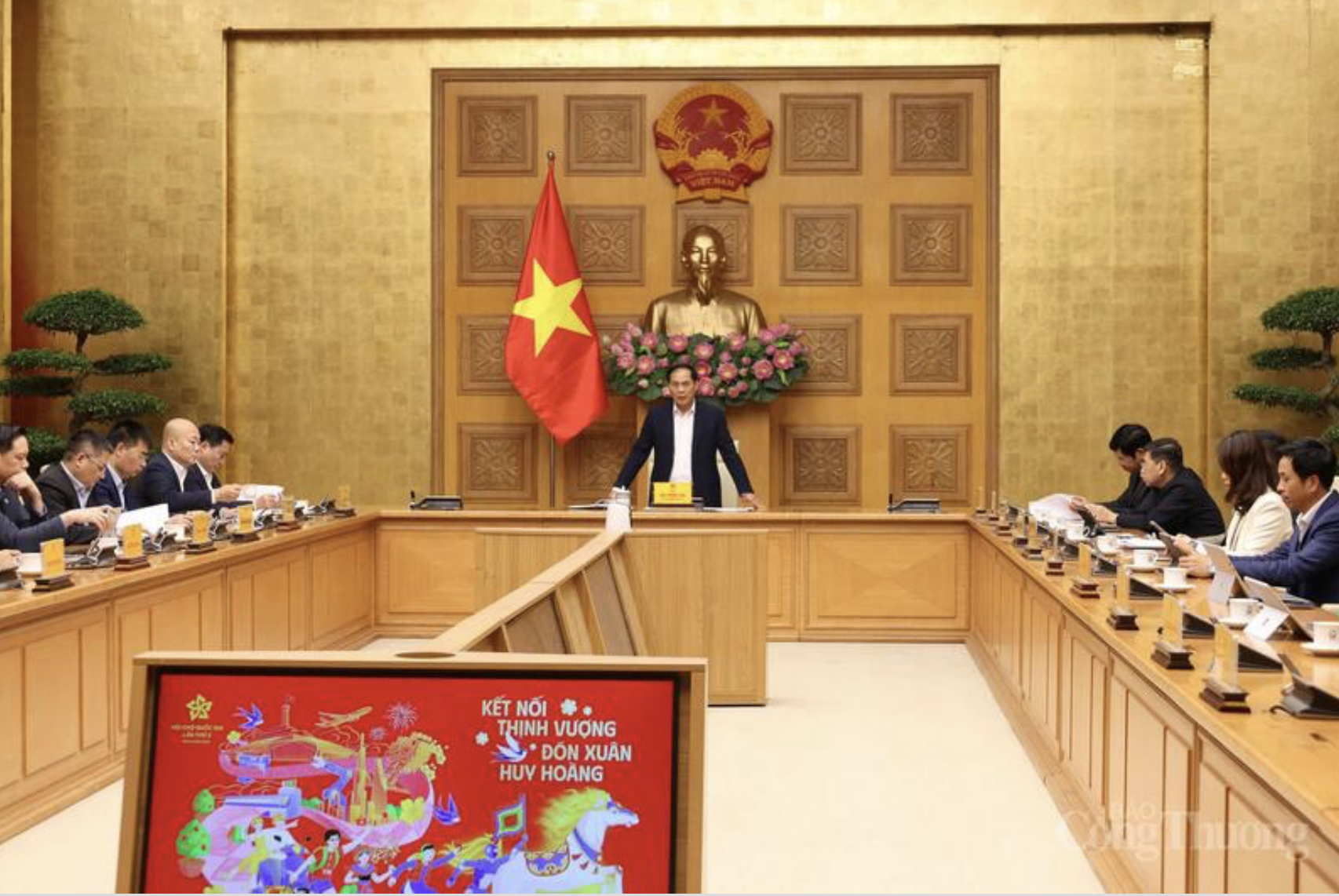
ISEA drives industrial safety and environmental management for 2026 priorities
19:05 | 23/03/2025 22:23 | 09/01/2026News and Events
 |
| Huong Pagoda – A popular spiritual tourism destination - photo: Linh Nguyen |
Diverse destinations
Spiritual tourism destinations nationwide, including sacred pagodas, ancient temples, and historical sites linked to folk beliefs, are attracting a large number of visitors. Popular sites include Hung Kings Temple (Phu Tho Province), Huong Pagoda (Hanoi), Tran Temple (Nam Dinh Province), Ba Chua Kho Temple (Bac Ninh Province), Yen Tu (Quang Ninh Province), Bai Dinh (Ninh Binh Province), and Tam Chuc Pagoda (Ha Nam Province).
Many travelers opt for pilgrimages to renowned spiritual sites abroad, such as Shwedagon Pagoda (Myanmar), Wat Arun (Thailand), Tiger’s Nest Monastery (Bhutan), Meiji Shrine (Japan), Uluwatu Temple (Indonesia), and Lingyin Temple (China), among others. Each location carries its own mystical charm and unique appeal, offering visitors unforgettable spiritual experiences.
Recognizing market demand, travel agencies have quickly adapted, organizing various spiritual tours that combine sightseeing, regional cultural experiences, and international pilgrimages. Nguyen Van Tai, CEO of VietSense Travel, noted that the demand for spiritual tourism is rising, especially at the beginning of the year. In response, the company has designed dozens of tours that blend pilgrimage, festival experiences, and relaxation to better serve tourists.
Nguyen Tien Dat, CEO of AZA Travel, predicted that the spiritual tourism season would remain vibrant from January to March 2025. To cater to this, AZA Travel is actively designing tailored tours. Some popular spiritual tours, which often sell out quickly, include
Hanoi - Bai Dinh - Trang An (Ninh Binh Province) tour; Huong Pagoda tour (1-day or 2-day trip); Hanoi - Yen Tu tour; spiritual tour to Ba Den Mountain and Cao Dai Holy See in Tay Ninh Province (departing from Ho Chi Minh City), etc.
Promoting civilized practices during festival season
Spiritual tourism and festivals offer travelers an opportunity to explore culture, beliefs, and seek peace, tranquility, and spiritual values. To ensure a meaningful and fulfilling experience, travel agencies recommend that visitors carefully prepare for their journey, including wearing appropriate attire for temples and pagodas, maintaining order, respecting sacred spaces, and refraining from taking photos in restricted areas. Travelers should also exercise caution when shopping near festival sites, do a research on prices in advance to avoid overcharging, and be wary of scams and/or stalls impersonating temple vendors selling overpriced items.
Pham Hai Quynh, Director of the Asian Tourism Development Institute, suggests that authorities and local governments should work towards establishing a distinctive spiritual tourism image, leveraging social media for promotion, and collaborating with international travel companies. Additionally, he advocates for integrating spiritual tourism with cultural, culinary, and nature-based experiences to enhance visitor appeal.
In line with the Prime Minister’s directive on maintaining a civilized, safe, and economical festival environment following the Lunar New Year holiday and the 2025 Spring Festival season, the Ministry of Culture, Sports, and Tourism has issued an official notice urging provincial and municipal governments to intensify public awareness campaigns. These efforts aim to enhance the sense of responsibility among local authorities, businesses, and tourists, ensuring strict compliance with regulations on festival organization and participation.
The ministry also encourages the public to limit the excessive burning of votive paper and incense, promoting cost-effective and environmentally friendly practices to prevent fire hazards. Furthermore, it calls for greater efforts in educating the public about the origins of festivals, historical sites, and revered figures, while emphasizing the true cultural and spiritual significance of traditional rituals./.
| The Ministry of Culture, Sports, and Tourism has urged local authorities to strengthen inspections and monitoring before, during, and after festivals. Violations such as exploiting historical sites, religious events, and festivals for personal gain, engaging in superstitious practices, or gambling must be promptly prevented and strictly punished. |

19:05 | 23/03/2025 22:23 | 09/01/2026News and Events

19:05 | 23/03/2025 18:31 | 09/01/2026Industry

19:05 | 23/03/2025 17:43 | 09/01/2026News and Events

19:05 | 23/03/2025 16:58 | 09/01/2026News and Events

19:05 | 23/03/2025 16:58 | 09/01/2026News and Events